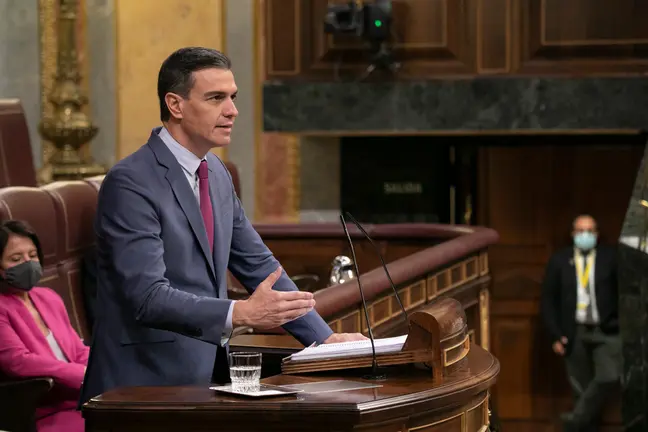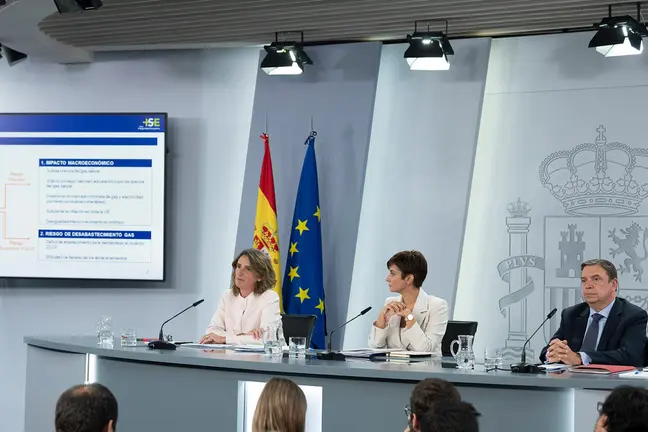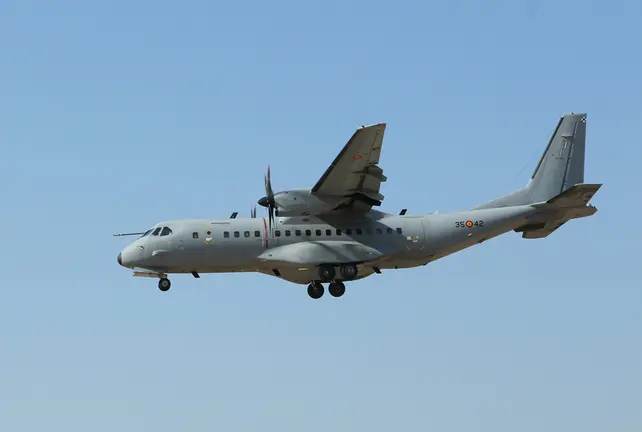Spain's prime minister flew to the country's North African exclave of Ceuta on Tuesday, amid signs of a crisis, after 8,000 people, including 2,000 minors, managed to reach the border fence when Moroccan officials suddenly suspended security controls.
Prime Minister Pedro Sanchez cancelled his attendance at a summit in Paris and flew to Ceuta by helicopter, where he was due to meet Interior Minister Fernando Grande-Marlaska. Sanchez said he wanted to gain an overview of the situation and reassure the public of Spain's support.
The situation there was "much calmer," according to RTVE.
Sanchez said he wanted to gain an overview of the situation and reassure the public of Spain's support.
According to the Spanish Interior Ministry, as of Tuesday evening, at least 4,000 people had been turned back after reaching Ceuta, an event that Spain said only happened because Morocco wanted to mete out punishment for Madrid providing aid to a separatist.
In the past day, nearly 8,000 North Africans managed to walk along the coast to the border fence to Ceuta, after Morocco suddenly suspended security controls along the Mediterranean coastline without explanation.
From there, they only had to swim around a breakwater to get to Ceuta - and by definition, Europe.
Polisario seeks independence
Spanish media said the move was deliberate, as the Moroccan government is reportedly annoyed that Madrid allowed the entry of Brahim Ghali, secretary general of the Polisario Front movement, to the Spanish mainland.
The movement seeks the independence of North Africa's disputed Western Sahara.
The movement seeks the independence of North Africa's disputed Western Sahara. Morocco took over Western Sahara in 1975 after Spain withdrew from the region. It claims the area as part of its territory. The Polisario Front seeks the territory's independence.
Ghali has been treated in Spain for coronavirus since April. He is seen as a war criminal by the Moroccan government, and Rabat issued strong criticism of Spain's move 10 days ago, calling it unjustifiable.
 A Spanish army soldier helps a person lying on the shore during an operation to return migrants. Photo: Antonio Sempere/dpa.
A Spanish army soldier helps a person lying on the shore during an operation to return migrants. Photo: Antonio Sempere/dpa.
Sanchez: 'A serious crisis'
Sanchez described the events as a "serious crisis" for the country and vowed to do everything possible to guarantee Spain's security. Back in Madrid, the Foreign Ministry summoned Morocco's ambassador to express Madrid's dismay with the situation.
Foreign Minister Arancha Gonzalez Laya said that both countries are responsible for border control and stressed that it is now necessary to look to the future "so that such events do not happen again."
However, Morocco's ambassador, Karima Benyaich, did little to dispel suspicions that the move was retaliatory. She told reporters before being summoned that there are actions "that have consequences."
Spain returned the migrants unusually quickly. Some 1,500 people were returned within the space of hours, according to Grande-Marlaska.
He pledged to continue returning the migrants.
Thousands of people were waiting on the other side for a chance to try and reach Ceuta. Some threw stones as Spanish security forces, who responded with tear gas.
Authorities overwhelmed
Morocco's closure of the Ceuta border due to the pandemic has plunged many people into poverty.
Spanish television showed soldiers accompanying migrants, some limping, across beaches to border fences. Swimmers meanwhile tried to reach the shore but were prevented from doing so by soldiers.
In Ceuta, the authorities were overwhelmed and could do no more than save people from drowning. One person died, local media reported.
Ceuta, with a population of around 85,000 people, has been overwhelmed by the arrivals. By comparison, just more than 5,000 migrants had arrived to the exclave in total in the last three years.
 Spanish Prime Minister Pedro Sanchez (C) gets into a car upon his arrival in the North African Spanish city of Ceuta. Photo: Antonio Sempere/dpa.
Spanish Prime Minister Pedro Sanchez (C) gets into a car upon his arrival in the North African Spanish city of Ceuta. Photo: Antonio Sempere/dpa.
Overcrowded reception camp
Most of the adults, who were initially left to wander around the city, were taken to a stadium for shelter. The minors were placed in a reception camp, which quickly became overcrowded.
"We are providing people with the essentials, dry clothes, food and water," Isabel Brasero, of the Spanish Red Cross aid organization, told local media.
EU Council President Charles Michel promised Spain Brussels' "full solidarity."
"Spain's borders are the borders of the European Union. Cooperation, trust and shared commitments should be the principles of a close relationship between the EU and Morocco," Michel said.
A German minister called for immediate negotiations with Morocco.
"Where is the European Union's foreign policy capacity to act?" German Development Minister Gerd Mueller.
He said high fences and border security would not solve the problems in Morocco and in the Maghreb region, and said fair economic and trade policies were also needed.
Morocco has been negotiating for 15 years for better access for its goods to the European economic area, Mueller said.
Donald Trump
Complicating matters is the fact that former US president Donald Trump recognized Morocco's sovereignty over Western Sahara.
Since then, tensions have increased between Morocco and European countries that criticized Trump's decision.
The UN refugee agency UNHCR says that a total of 416 migrants had been counted in Ceuta since the start of the year.











